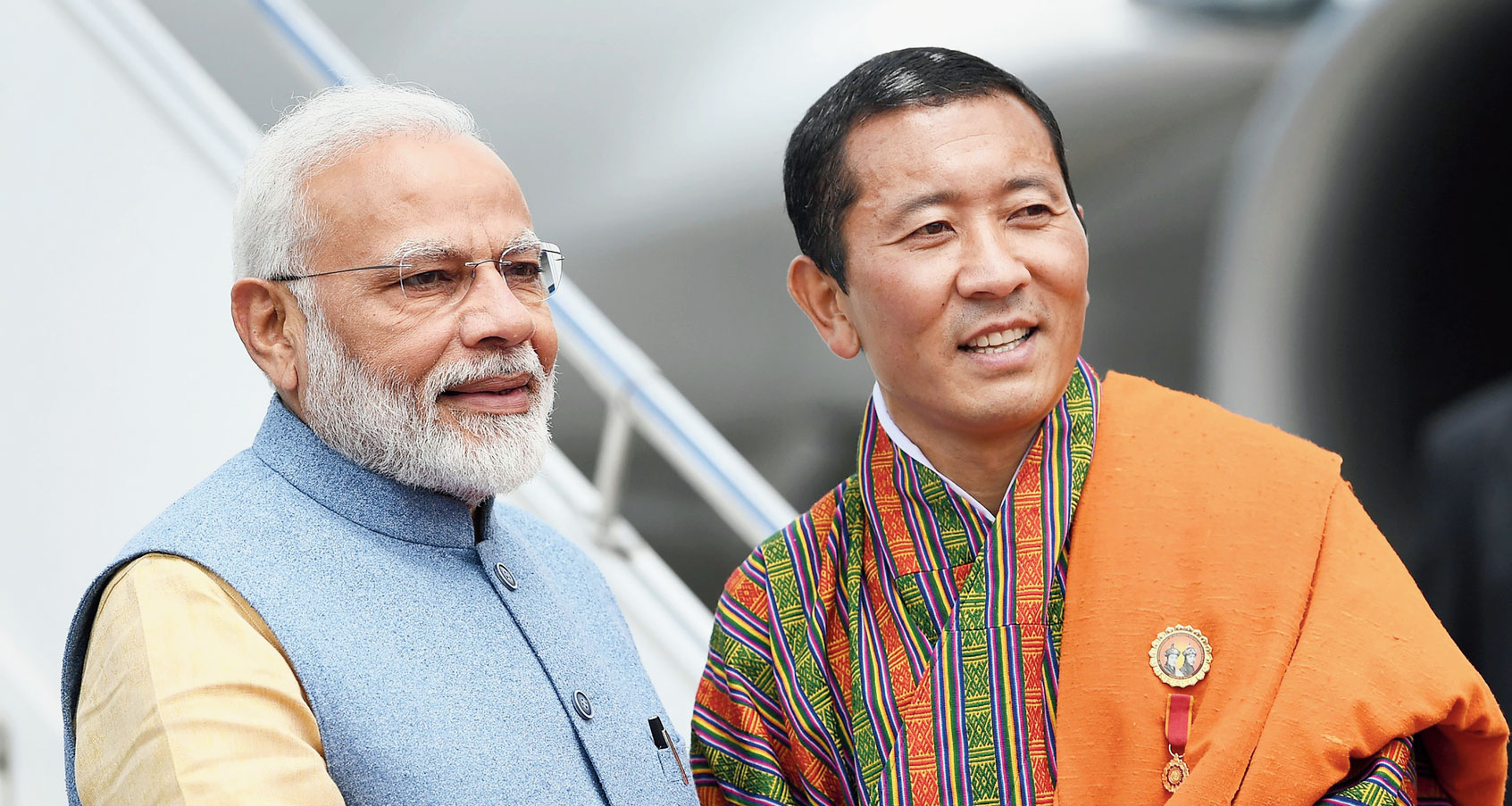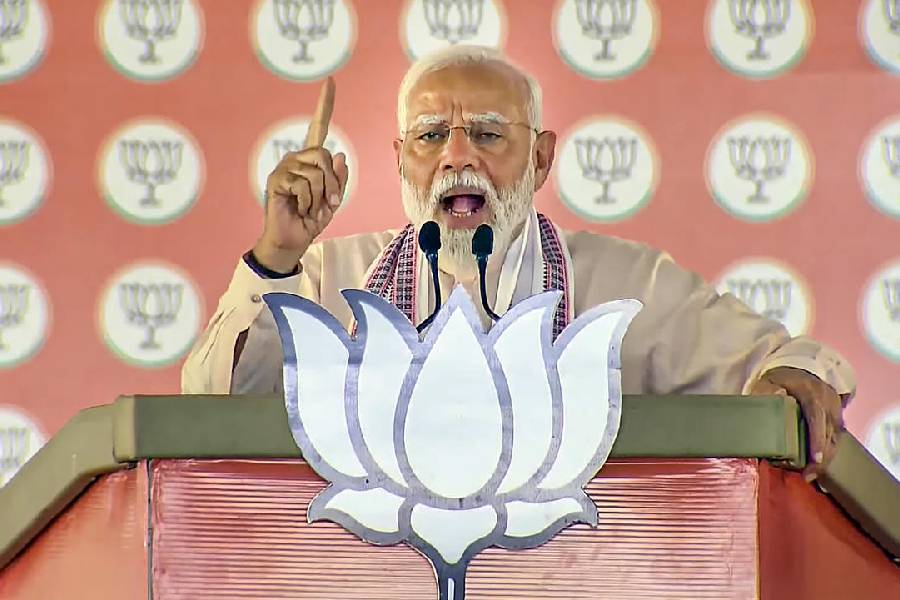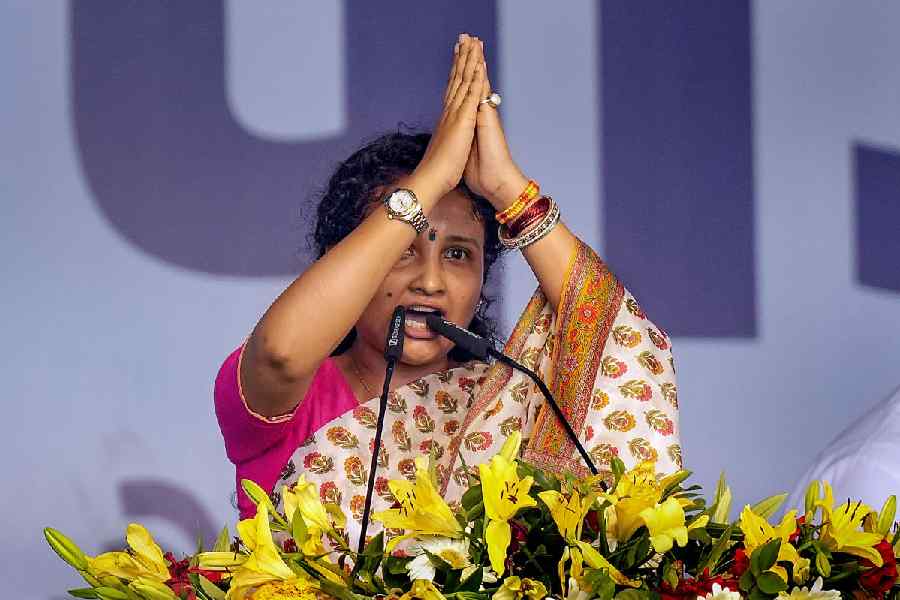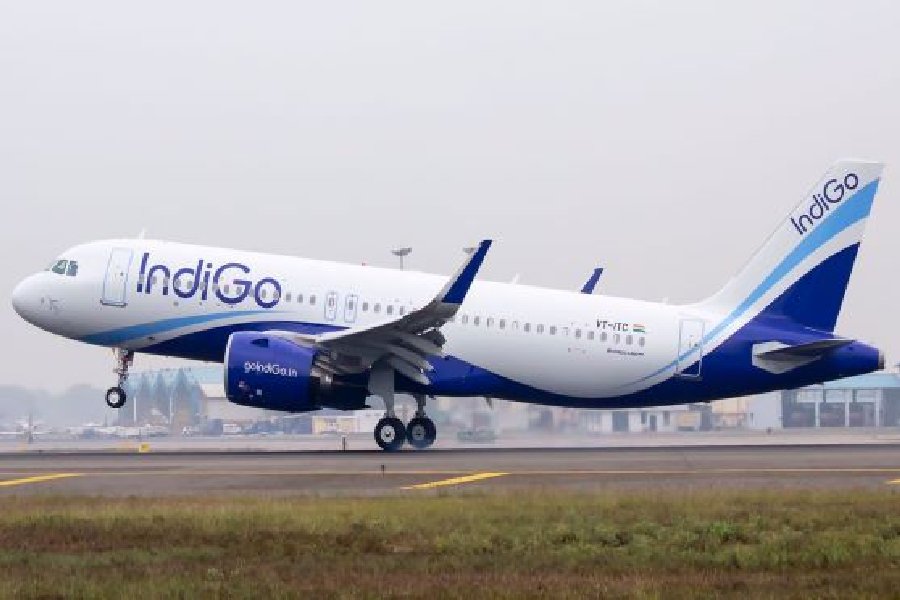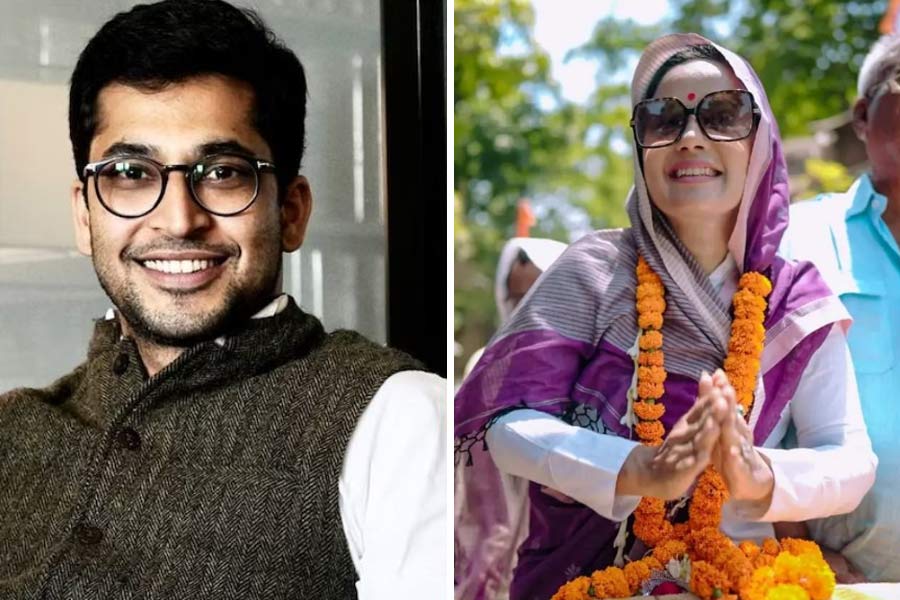Prime Minister Narendra Modi on Saturday conveyed to the Bhutanese leadership that India was keen to look beyond the hydropower sector — seen as the “fundamental basis” of bilateral relations — and cooperate in areas such as health care, education and science and technology.
The message reflected New Delhi’s keenness to accommodate Bhutan’s priorities while chalking out the future of the ties.
On Day One of Modi’s two-day visit to Thimphu, the two countries signed 10 MoUs in areas such as aviation, information technology, space research and education.
The day, described by the Indian foreign ministry as “fulfilling”, also witnessed Modi and Bhutan Prime Minister Lotay Tshering inaugurate five projects, including a hydropower plant and a ground station for the South Asian Satellite.
“All these are designed to assist the government of Bhutan achieve a more balanced economic and commercial relationship with India. The Prime Minister told his counterpart that India is prepared to do more if the government of Bhutan so desires,” foreign secretary Vijay Gokhale said on Saturday evening.
The statement was an attempt to address a section in Bhutan that thinks India’s interest in the Himalayan nation is linked to exploiting the country’s hydropower sector to meet its own energy needs.
In recent years, there have been demands for improved research and use of better technology — because of ecological concerns — in building hydropower projects and a review of the terms of the power trade.
Given Bhutan’s strategic importance — the country shares borders with both India and China — New Delhi is keen to dispel such misgivings. The fact that New Delhi is eager to deliver on Bhutan’s wish of broader cooperation and help the country prosper has been the defining message from India on Modi’s second trip as Prime Minister to the fledgling democracy.
Several opinion-makers in Bhutan told this correspondent that now that the country has officially entered the five-year preparatory period to graduate from the Least Developed Country category, the aspirations of the tiny Himalayan country, which relies heavily on India’s assistance for development, are no longer the same.
“There is no doubt development assistance and hydropower have been the cornerstone of the bilateral relations thus far, but with development and change, the priorities are changing…. It is in their (India’s) interest to see their most friendly neighbour develop and not depend on aid or assistance even after decades of sponsored planned development,” Kuensel, the oldest Bhutanese newspaper, said in its editorial on Saturday.
Aware that the goal of self-reliance has often been misunderstood — as the Indian foreign ministry is always wary that Thimphu may give in to China’s overtures — the leadership in Bhutan walked the extra mile to convey to Modi that it considered India its most-trusted friend.
Tshering was present at Paro airport on Saturday morning when Modi landed, a gesture the Indian Prime Minister termed “deeply touching”. Modi’s convoy from Paro to Thimphu was greeted by local people who lined the picturesque road with Indian and Bhutanese flags. “A memorable welcome in Bhutan,” Modi tweeted, along with pictures.
Indian foreign ministry sources said “equal, if not more, warmth” was showered on Modi when he met Bhutanese King Jigme Khesar Namgyel Wangchuk, his father Jigme Singye Wangchuk, and Tshering behind closed doors.
Tshering later praised Modi for India’s rising stature under his leadership and also complimented him on his “bold decisions”. Tshering linked Bhutan’s progress to India. “Politically and economically stable India mean a prosperous Bhutan,” he said.
Deserted streets
Thimphu wore a deserted look on Saturday because of restrictions on traffic movement and roadside traders.
Some Bhutanese youths expressed unhappiness, calling the bandobast an “unnecessary curfew”.
A Bhutan government source said New Delhi had requested heightened security measures and so some extra restrictions had been put in place.

